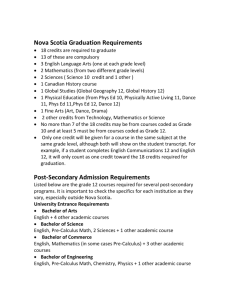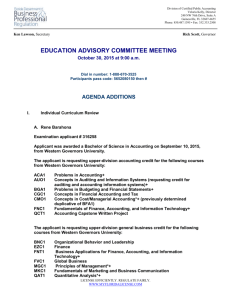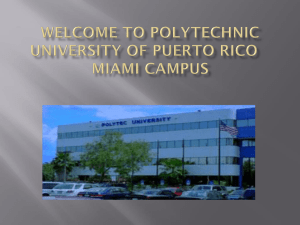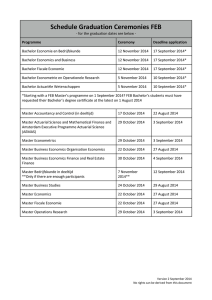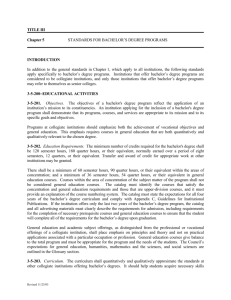10/5/10 - University of Montana
advertisement
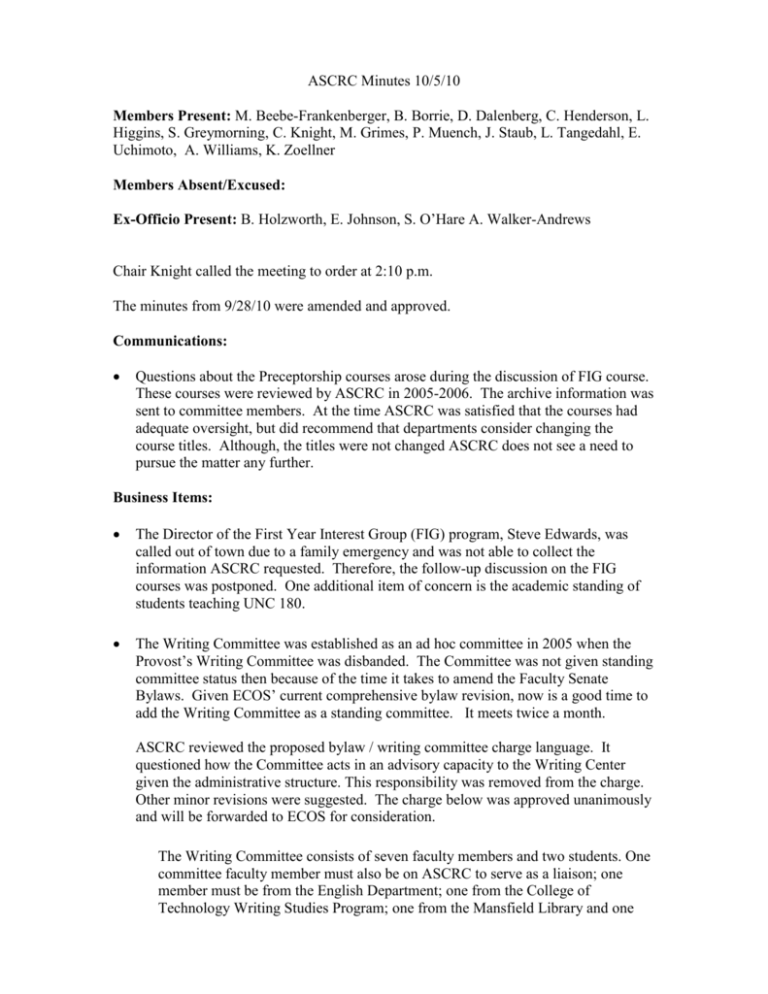
ASCRC Minutes 10/5/10 Members Present: M. Beebe-Frankenberger, B. Borrie, D. Dalenberg, C. Henderson, L. Higgins, S. Greymorning, C. Knight, M. Grimes, P. Muench, J. Staub, L. Tangedahl, E. Uchimoto, A. Williams, K. Zoellner Members Absent/Excused: Ex-Officio Present: B. Holzworth, E. Johnson, S. O’Hare A. Walker-Andrews Chair Knight called the meeting to order at 2:10 p.m. The minutes from 9/28/10 were amended and approved. Communications: Questions about the Preceptorship courses arose during the discussion of FIG course. These courses were reviewed by ASCRC in 2005-2006. The archive information was sent to committee members. At the time ASCRC was satisfied that the courses had adequate oversight, but did recommend that departments consider changing the course titles. Although, the titles were not changed ASCRC does not see a need to pursue the matter any further. Business Items: The Director of the First Year Interest Group (FIG) program, Steve Edwards, was called out of town due to a family emergency and was not able to collect the information ASCRC requested. Therefore, the follow-up discussion on the FIG courses was postponed. One additional item of concern is the academic standing of students teaching UNC 180. The Writing Committee was established as an ad hoc committee in 2005 when the Provost’s Writing Committee was disbanded. The Committee was not given standing committee status then because of the time it takes to amend the Faculty Senate Bylaws. Given ECOS’ current comprehensive bylaw revision, now is a good time to add the Writing Committee as a standing committee. It meets twice a month. ASCRC reviewed the proposed bylaw / writing committee charge language. It questioned how the Committee acts in an advisory capacity to the Writing Center given the administrative structure. This responsibility was removed from the charge. Other minor revisions were suggested. The charge below was approved unanimously and will be forwarded to ECOS for consideration. The Writing Committee consists of seven faculty members and two students. One committee faculty member must also be on ASCRC to serve as a liaison; one member must be from the English Department; one from the College of Technology Writing Studies Program; one from the Mansfield Library and one each from Humanities, Social Sciences, Sciences, and Professional Schools. The committee may also have ex officio, nonvoting members representing the Writing Center, the Composition Program, and the Registrar’s and Provost’s offices. The primary responsibility of the Writing Committee is ongoing evaluation and assessment of the appropriateness and effectiveness of writing requirements and criteria. The Writing Committee acts as an advocate for effective writing, proposes revisions to the requirements and criteria, and reviews writing course proposals. The Committee monitors the programs of the Writing Center and the Writing Proficiency Assessment procedures, results, and appeals. ASCRC discussed the Residency Requirement language. The following revision was approved unanimously. Requirements for the First Bachelor Degree A first bachelor degree is defined as any bachelor degree earned by a student who has not previously earned a bachelor degree from The University of MontanaMissoula. Thus, the following requirements below also applies to any student who previously earned a bachelor degree at another institution and now is seeking a bachelor degree from The University of Montana-Missoula: a) A minimum of 30 credits of the required number must be earned from The University of Montana-Missoula. b) A minimum of 30 credits of the required number must be earned in study on The University of Montana-Missoula campus. c) Of the last 45 credits required for the degree, at least 30 of these must be earned from The University of Montana- Missoula. Students attending elsewhere on a University approved exchange may be exempt from this requirement with the prior written approval of their major department chair or dean. Requirements for the Second Bachelor Degree In regard to residency requirements, a second bachelor degree is defined as any bachelor degree earned by a student who previously had earned a bachelor degree from The University of Montana-Missoula. A minimum of 20 credits of the required 30 credits must be earned in study on from The University of Montana-Missoula campus. There is still concern that the last courses taken may not be upper-division courses in the major which is the intent. However, departments define program requirements and sign off on students graduation applications, so it is presumed adequate controls are in place. ASUM is considering the Montana Tech upper-division course requirement model. It may work on a resolution in the future. The numbering scheme for the procedures was modified and approved (below). The cross-listing conundrum was discussed. Registrar Johnson has talked with other campuses and no one has the perfect solution. Banner is limited to 4 characters for the rubric and 5 for the number. Courses with general education letters use all the number fields. Although the Commissioner Office indicates campuses may cross-list, it has not provided the means. A procedure is needed to allow cross-listing when the course has not been vetted by common course numbering. Faculty are concerned that without cross-listing students will not be able to find courses, so there needs to be a viable search mechanism. Next week Registrar Johnson is attending the system-wide Registrar’s meeting. He will bring up the issue. It would be helpful if there was a system-wide solution. The Committee will meet next in two weeks on October 19, unless there is a compelling reason to meet next week. The meeting was adjourned at 4:05 PM. ASCRC Procedures Numbering Outline Curriculum review (201) 201.10 Certificate Program Guidelines 201.20 Course Number Reuse 201.30 Criteria for Evaluating Curriculum Changes 201.30.1 Adding new courses 201.30.2 Curriculum Subcommittee Responsibilities 201.30.3 Editorial Catalog Changes 201.30.4 Requesting Reconsideration of a Rejected Curriculum Proposal 201.40 Cross-Listing 201.50 Dormant Courses 201.60 Online Courses, Principal of Quality 201.70 Reserved Course Numbers 201.80 Special Topics courses General Education (202) 202.10 202.20 202.30 202.40 202.50 General Education Framework General Education Course Criteria and Learning Outcomes Writing Course Guidelines One-time only General Education Courses General Education, Guidelines for review Graduation requirements (203) 203.10 AP/CLEP Credit 203.20 Credit Maximums: Study/Career Skills 203.30 Declaration of Major Policy 203.40 203.50 203.60 203.70 203.80 Drop Add Policy Graduation Appeals Committee Internships Majors Policy Minors Policy
